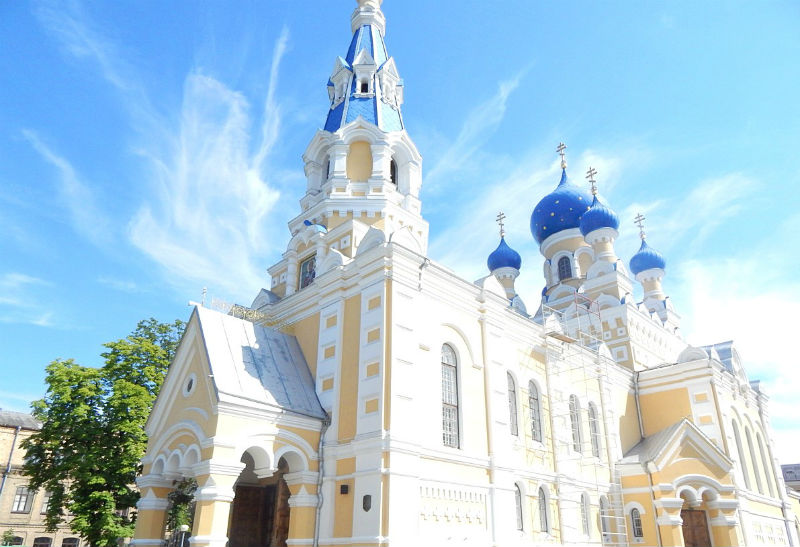Entertainment
10 European Destinations Worth Visiting in 2019
published on
When you think about traveling through Europe, what comes to mind? If you said, “Checking out Brno, Czech Republic” you’re actually pretty awesome. But most people think Eiffel Tower. The Roman Colosseum. Brandenburg Gate. Paris, Rome and Berlin are pretty nifty places, but why not toss in a few surprisingly charming small European cities that you might not have considered? Not only are they far cheaper than places like Vienna, you can definitely spend a day or two walking around the city. For this list, I’m only including cities that I have personally been to.
Table of Contents
Ljubljana, Slovenia

A city that nobody can pronounce. A country that nobody can find on a map (and often gets confused with Slovakia). With a population of around 280,000, one of the smallest capitals in all of Europe, but on a nice day it is perfect for exploring. The city dates back nearly 1,000 years and while the area outside of the city center is fairy drab and “Communist”-looking the center itself is well preserved with a mixture of Romanesque, Gothic, Renaissance and Baroque styles of architecture. While walking around, you have seven bridges to choose from, each with its own unique appearance.
Sarajevo, Bosnia and Herzegovina

A quarter of a century ago, Sarajevo was a war-torn city full of rubble and despair. But today, it’s a thriving capital that looks part Western Europe and part Istanbul. Its idyllic setting –
located in the narrow valley of the Miljacka River at the foot of Mount Trebevic – and religious diversity make it a destination worth visiting. My favorite area was Baščaršija, a bustling market in the historical center of the city that dates back to the 1400s.
Kosice, Slovakia

Named the European Capital of Culture in 2013, Kosice features a massive gothic church known as St. Elisabeth Cathedral as well as a smaller 14th century church called St. Michael Chapel. The city center is lined with open air cafes on either side of the street and you’ll find some really good (and cheap!) locally brewed beer if that’s your thing.
Riga, Latvia

Located on the Baltic Sea at the mouth of the River Daugava, Riga is notable for its wooden buildings, art nouveau architecture (with more than 800 buildings in this style) and medieval Old Town. Most of the city center was destroyed during WWII and wasn’t rebuilt until the 1990s, but these days it’s a pretty happening place to be with tons of cafes and nightclubs. Discount airlines such as WizzAir and RyanAir offer really cheap flights to the city.
Gdansk, Poland

When people visit Poland, they typically choose Warsaw, Krakow and Wroclaw. But Gdansk is truly an underrated city. This port city along the Baltic Sea has a rich history, having changed hands numerous times during its more than 1,000 years of existence. While the city was almost entirely destroyed during WWII, it was meticulously rebuilt, which surprise a lot of people who are likely to assume that the buildings all date back centuries.
Vilnius, Lithuania

Another city located in the Baltics, I loved my visit there because of the varying architecture, the craft beers, and of course the “Republic” of Užupis, a hipster’s paradise that features a statue of Frank Zappa. The old city center really plays up the whole Medieval theme, with girls dressed up as faire wenches (or whatever you want to call them) and hocking souvenirs.
Lviv, Ukraine

Lviv is the most “European” city in all of Ukraine. Rynok Square in the old city center is always bustling and you’ll find cuisine of every variety and tons of in-house beer at ridiculously low prices. If you’re looking to escape from the crowds, Stryyskiy Park is a huge place where you can find a spot to relax undisturbed.
Zagreb, Croatia

The capital of Croatia, this charming city with cobblestone streets and outdoor cafes is teaming with parks, museums and shops. I had gone there after a couple of days in the beautiful, relatively close Austrian city of Graz, and while it would be an exaggeration to say the two cities are at the same level, I did not find much of a drop-off in terms of living standards once I got to Zagreb.
Tallinn, Estonia

Of the three Baltic capitals (along with Vilnius and Riga), Tallinn was hands down my favorite. The prices are cheap, the atmosphere is unmatched, and at the same time the breeze kept the temperatures comfortable during my August visit. The medieval old city contains narrow, windy streets that make it fun to explore. I had dinner at Olde Hansa, a 15th century restaurant where I drank mead and ate some huge pork thingy where you hold the bone like a handle, probably the way King Henry VIII would have eaten it or something.
Brest, Belarus

At first glance it might seem weird that any city in Belarus would make this list. After all, there is no country in the world – not even Russia itself – that feels more Stalinist than this small former-Soviet country. But Brest is really unexpectedly nice. It feels welcoming and you’ll find all of the coffee shops, parks, and pedestrian streets that make all of those other European cities so appealing. Plus Belarus as a country rarely sees foreign tourists, so it would be something of a novelty both to you and the locals who stumble across you.